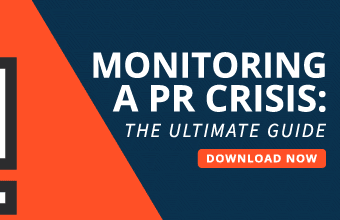As with any important communication, the medium of the message matters. While public statements and interviews are important because of the reach that accompanies them, sometimes in a crisis another medium may be more effective or appropriate.
Emails are a powerful medium that PR professionals have at their disposal to handle a crisis, but as with any medium, there is a right and wrong way to employ emails. Understanding how to best leverage the power of email is critical for crisis PR agencies during a crisis. Here are 6 ways to use emails effectively during a crisis.
1. Use emails to provide information on how service levels have been impacted
During a crisis, the customers of your clients are going to want to know how they are most impacted. Emails are fantastic for crisis communication precisely because they are personal, which allows a message to carry the right amount of formality while still being targeted.
However the audience of these emails wants information more than apologies or excuses. Keep it factual and transparent about current events – after all, those reading the emails will have their expectations better managed if what is being communicated via email doesn’t change even if other media outlets are sowing chaos and confusion.
The bottom line: customers just need to know what matters most to them:
- Opening/closing dates
- Back in stock dates
- Shipping delays
- Contact Information
- Where to report complaints or concerns
- Or other details related to the current situation
2. Manage expectations about upcoming changes
No single plan is foolproof, and in a crisis sometimes all a client has available to them are contingency plans as they begin to adapt to an unfortunately dynamic situation. Rather than keeping these plans close to the vest, communicating contingency plans to customers impacted can be comforting.
This is especially true when a crisis requires a client to pivot into a new way of doing things. In these cases, email is invaluable for informing their customers how they continue doing business as these changes begin to occur. And perhaps most importantly, these clients may be comforted by being informed about what isn’t going to change while everything else does.
3. Emails can be a better way of disseminating FAQs
Especially when questions can be anticipated, it is best to get ahead of a nervous public by answering the questions before they are asked. While an FAQ on a support page or a banner link might divert some attention away from customer support numbers that have been over-run by customers looking for answers, many will not.
Emailing the answers to the most concerning questions is an effective way to alleviate some of those concerns, simply because those that are most likely to open those emails are also the customers that are likely the most profitable or engaged with a client’s brand or service.
No matter the crisis, managing expectations and providing solutions is critical
While there are many more ways to use email effectively in a crisis PR situation, what they all have in common is that they rely on the fact that email is effective at getting in touch with the customers that reliably (and measurably) respond to this channel of communication.
These customers are dialed into what is happening, and so managing their expectations and providing solutions is not only in the best interest of a client, but the PR firm that wishes to establish the value they provide to the clients that work with them during a crisis.








